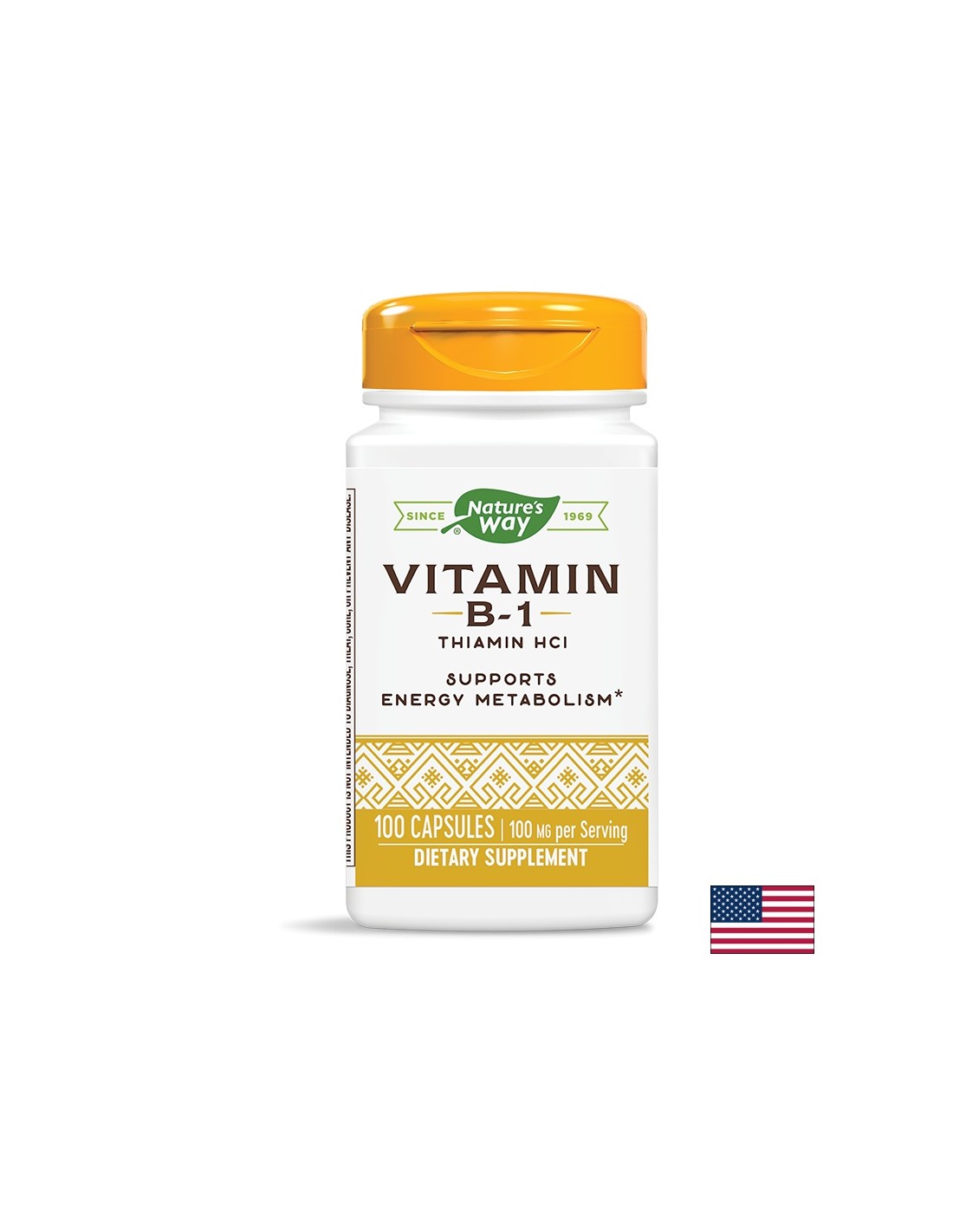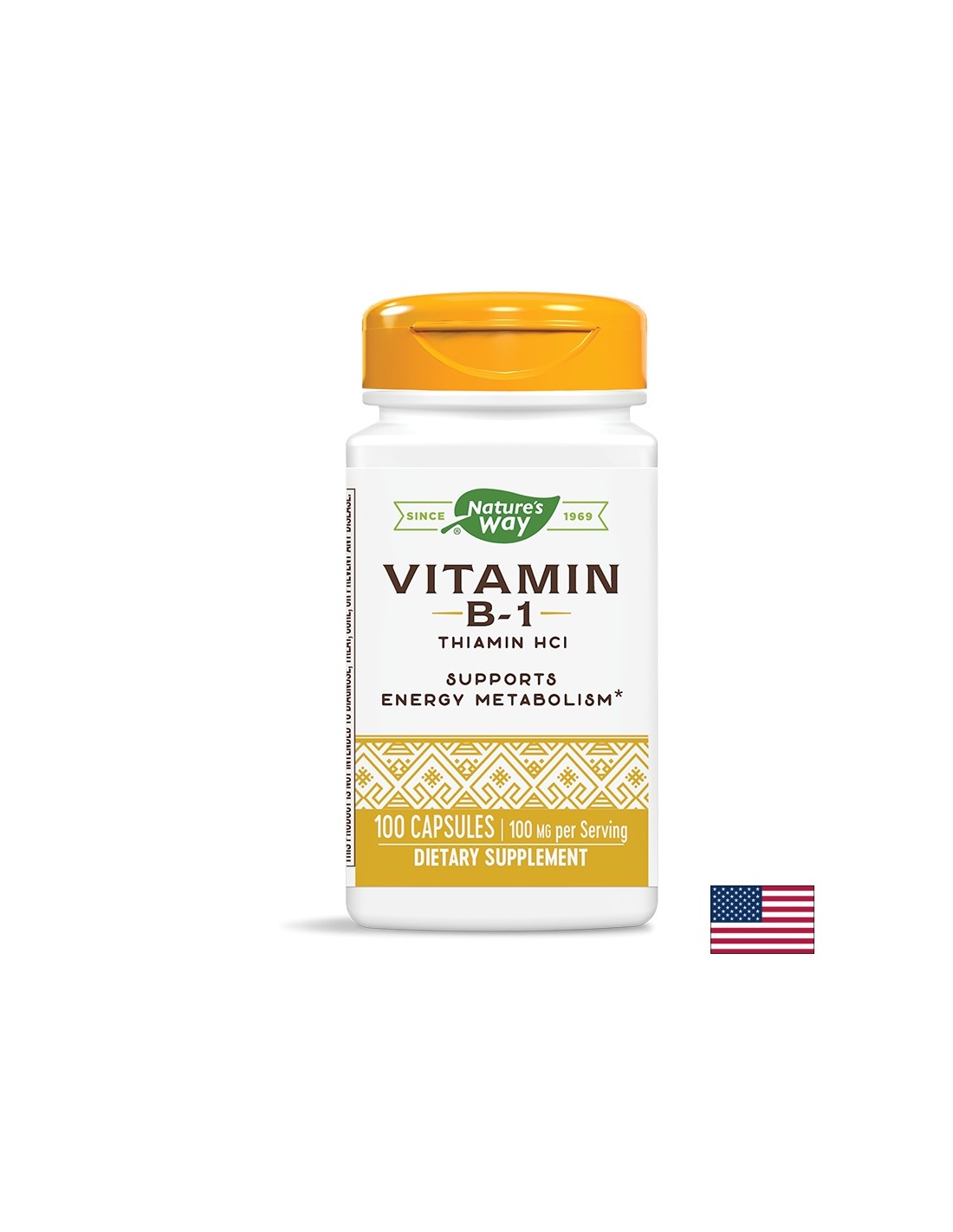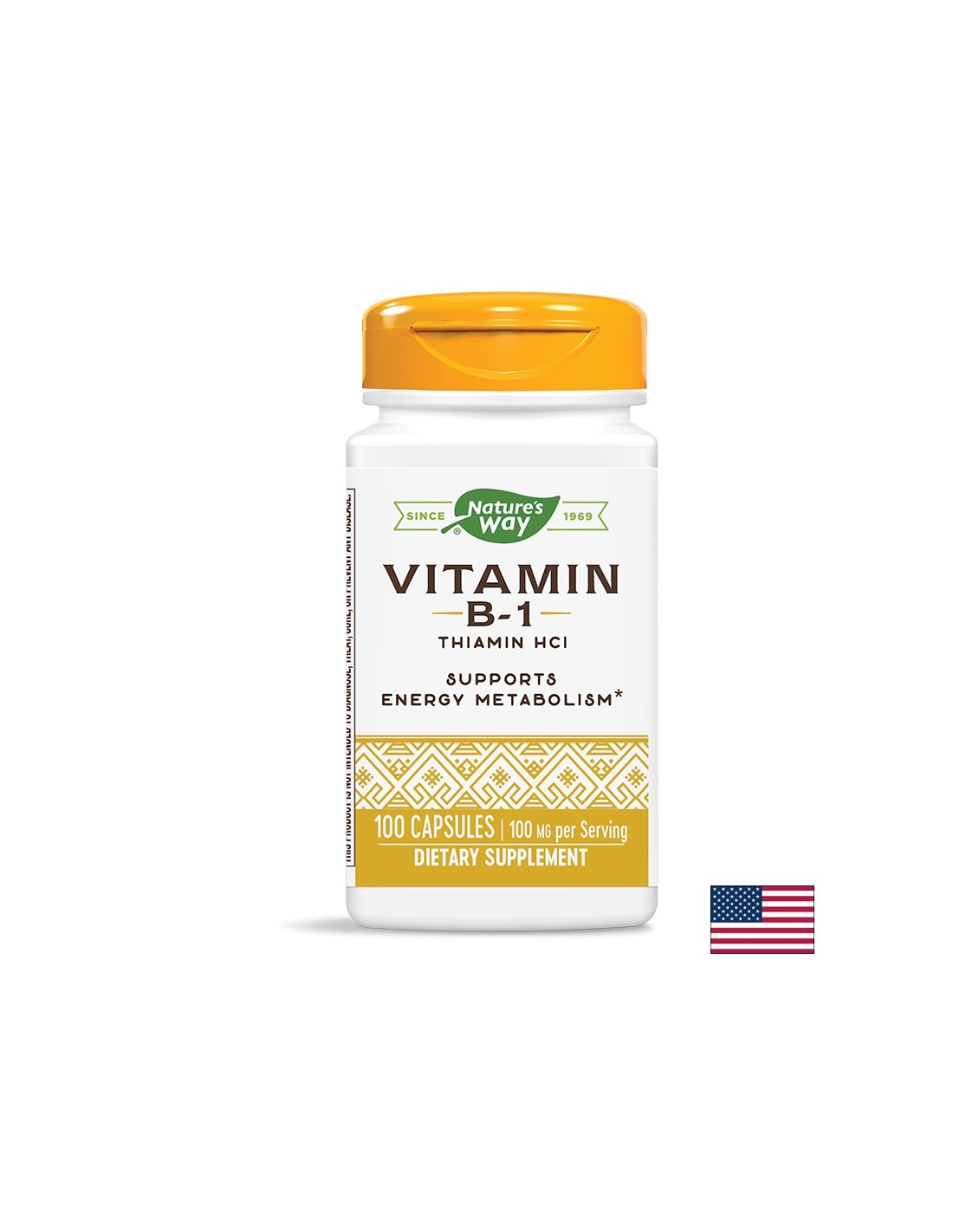What are the benefits of taking Vitamin B1?
→ Supports energy production by promoting the conversion of carbohydrates into energy reserves. It is a precursor of the active metabolite thiamine diphosphate, which is essential for the conversion of glucose into energy. It aids in the breakdown of fats and proteins.
→ Helps maintain the myelin sheaths around nerves. Myelin, which covers nerve fibers, is important for the speed of transmission of nerve impulses from the brain to other parts of the body. B1 deficiency, and the resulting degeneration of myelin, blocks these impulses and damages neurons.
→ Promotes normal heart function. B1 is involved in the production of the neurotransmitter acetylcholine, which is responsible for communication between nerves and muscles, and is crucial for heart function. Therefore, B1 deficiency can seriously threaten heart health. It has been found that supplemental B1 intake in cases of congestive heart failure leads to significant improvements in the condition.
→ When taken together with other nutrients important for vision, vitamin B1 reduces the risk of developing cataracts.
→ Has a significant anti-aging effect. Contributes to protecting the body from various signs of aging, including wrinkles, age spots, etc.
→ Since it promotes the secretion of hydrochloric acid, necessary for the proper breakdown of food, B1 also has a beneficial effect on digestive processes.
→ Promotes the maintenance of good memory and concentration, and reduces the risk of developing Alzheimer's disease. Supports normal functions of the nervous system.
→ Plays an important role in the production of red blood cells, which is important for maintaining tone and energy.
→ Useful in alcoholism. Vitamin B1 reduces the complications of alcoholism, especially in cases of cirrhosis, infections, hyperthyroidism, etc.

















































